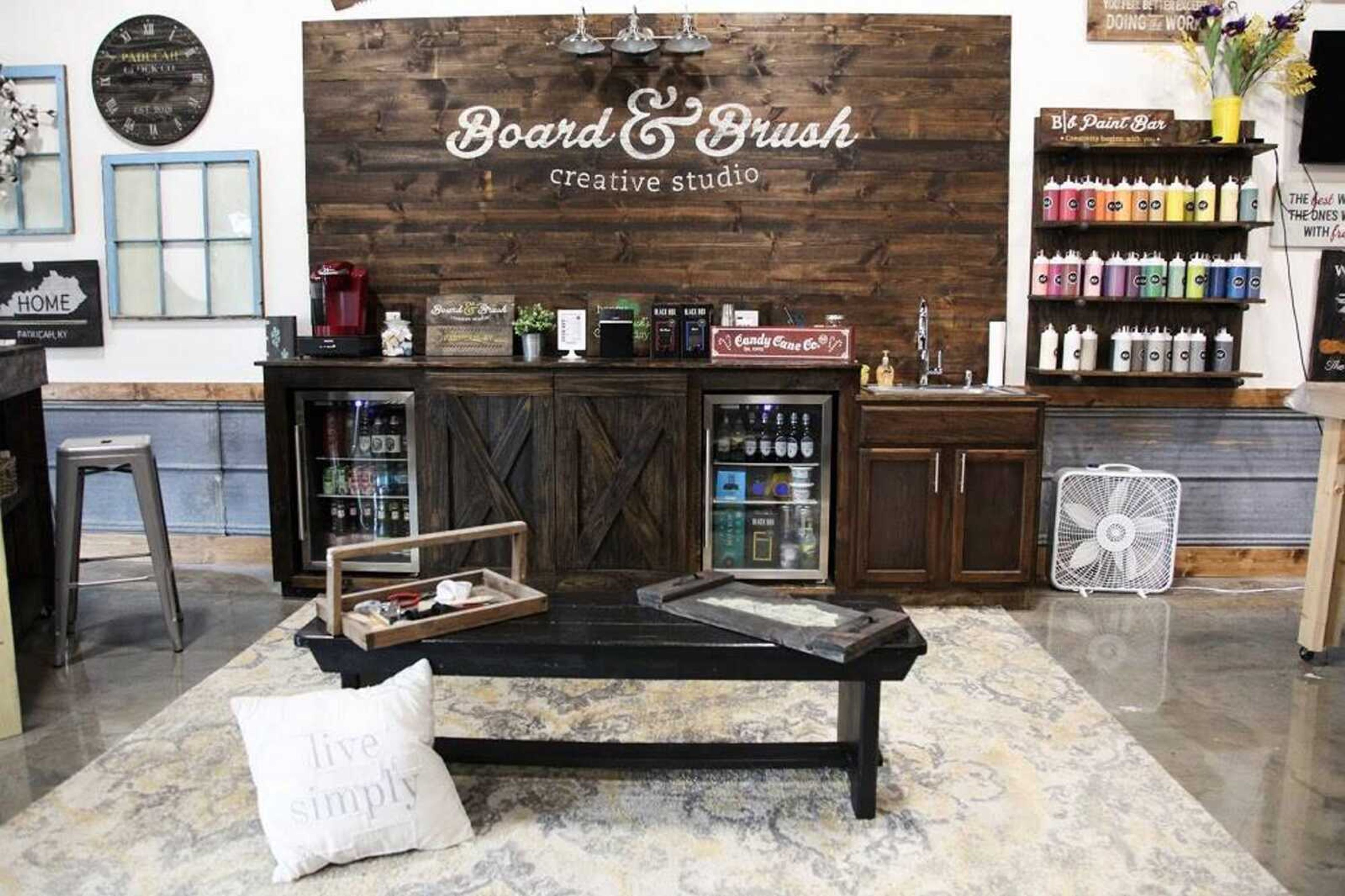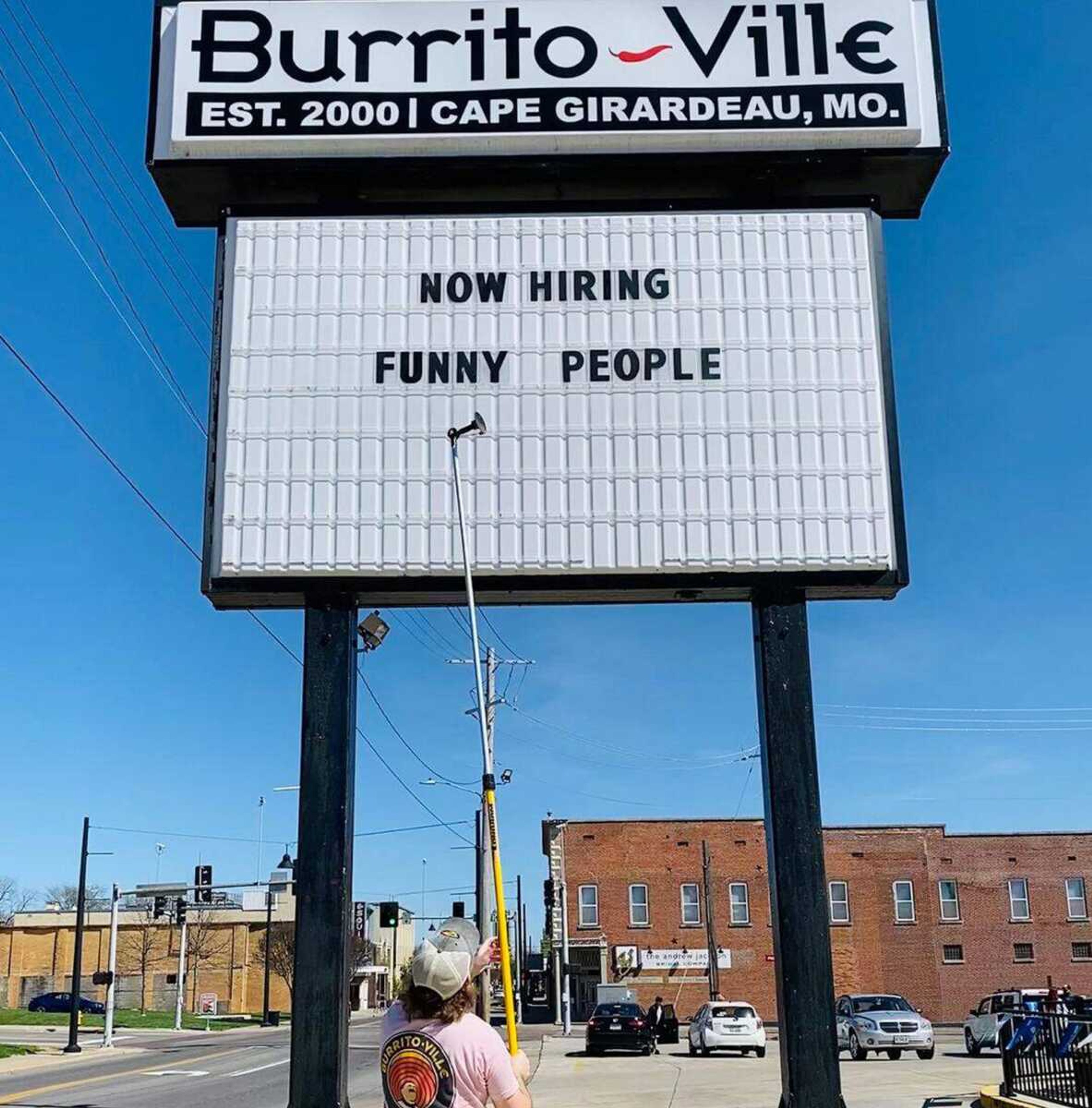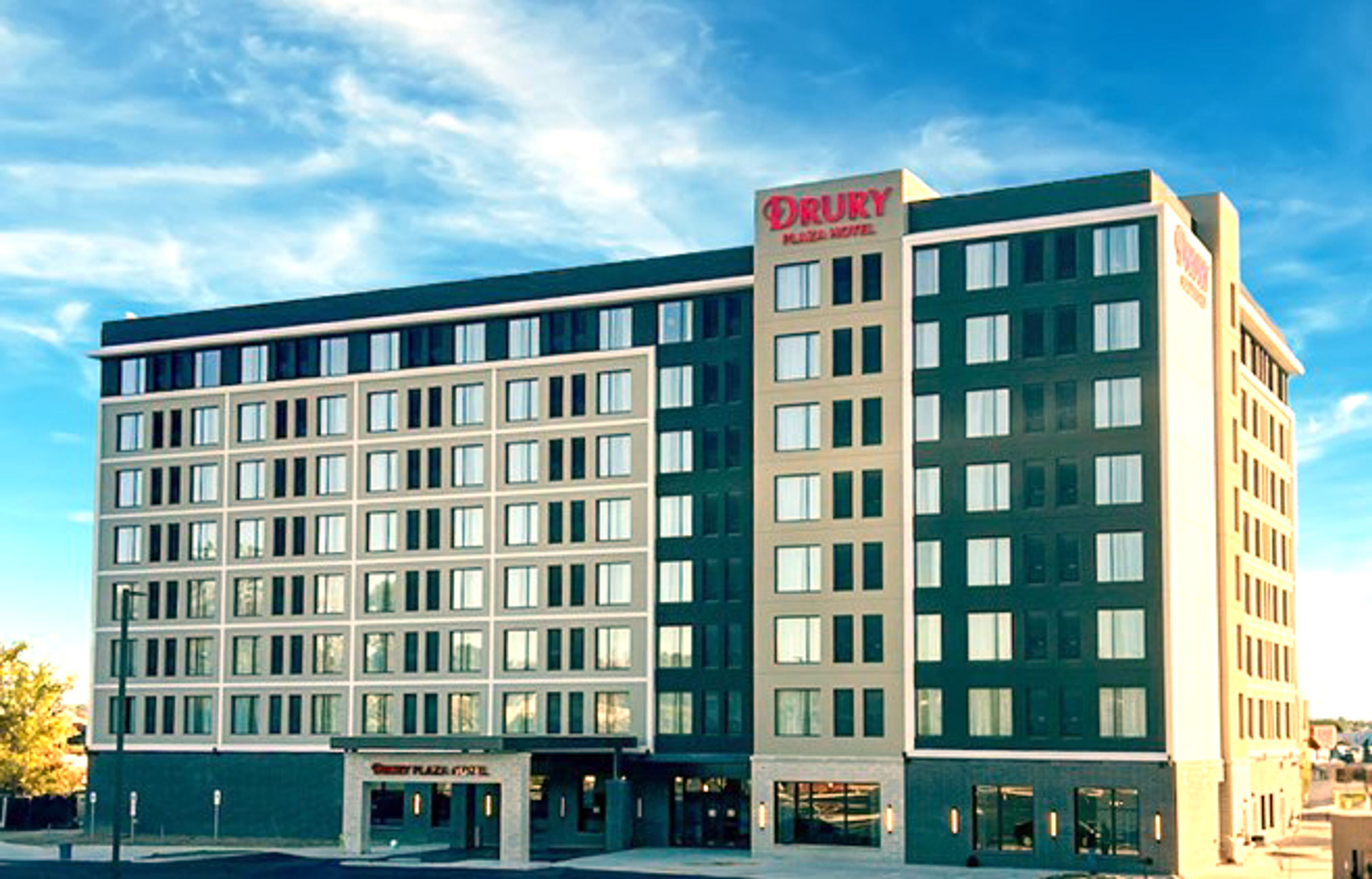Owners work to keep businesses afloat through COVID pandemic
While many business owners have closed during the COVID-19 pandemic, three local businesses owned by Southeast Missouri State University alumni have defied the odds. Burrito-Ville restaurant owned by Justin Denton, Fingerprint Urban Dance Studio owned by Micheal "Crank" Curry and Board & Brush Cape Girardeau owned by Brittney Swicionis have remained afloat over the last year...
While many business owners have closed during the COVID-19 pandemic, three local businesses owned by Southeast Missouri State University alumni have defied the odds.
Burrito-Ville restaurant owned by Justin Denton, Fingerprint Urban Dance Studio owned by Micheal "Crank" Curry and Board & Brush Cape Girardeau owned by Brittney Swicionis have remained afloat over the last year.
Burrito-Ville
Because of COVID-19, Burrito-Ville had to take special precautions to keep employees and customers safe, including fewer available seats, spacing out of tables and buying masks for employees. The restaurant now serves food in to-go containers, and many items, from forks to plates, have gone to single-use, instead of washing items.
Denton said his profits were negatively affected by not being able to buy items that were previously available and having to buy more expensive compostable to-go boxes, instead of Styrofoam.
"In the beginning, a lot of items had gone up and were hard to find — meat and milk were especially hard to find at times, toilet paper, masks, sanitizers," he said. "The stuff that we use daily, everyone else was working on hoarding, or everybody else was buying, and it wasn't as easy to get as it normally was."
But, he said Burrito-Ville had already been set up to do take-out orders, and employees got a lot better at it during the pandemic.
Overall, Denton said he is thankful COVID-19 did not have a devastating impact on his business.
Denton said he is hopeful the COVID-19 vaccines will help businesses go back to normal again. He said the outlook is good, as vaccines are available to all adults in Missouri as of Friday.

Fingerprint Urban Dance Studio
Curry, owner of Fingerprint Urban Dance Studio, had a different experience from Denton. Fingerprint is an umbrella business — a dance studio for children and adults interested in hip hop dancing, as well as a video and media company, that provides DJing services and does concerts and event planning.
Fingerprint closed March 15 of last year, around the time the children he teaches were home on spring break. After three days, Curry decided to use Zoom for his classes. He said he was already on Zoom, teaching hip hop dance classes to kids from Los Angeles.
The studio closed for approximately four months. Curry started to have indoor classes beginning in January.
Curry said his method of teaching through the pandemic was to go half online and half in person, similar to what schools and universities are doing; however, when he reopened, he only had five kids sign up, down from 30, resulting a significant drop in funds. He said the videography and DJing side of his business were the only things keeping his business afloat.
Curry said his business had been struggling for a long time, pre-pandemic. He said he did not have any financial help and wasn't aware at the time of various things, such as the Small Business Administration's Paycheck Protection Program loans and grants for new businesses.
"We only had five students; we didn't have a profit. We were losing money to have class," he said. "I'm pretty sure our highest reach of debt that we came face-to-face with this past year was $10,000. We were $10,000 under what we were supposed to be to even out our bottom line."
In the aftermath of the pandemic, Curry said he has had to adjust his business model and come up with new strategies in order to accommodate his students.
"It was really strange because, like, we had to make a decision on if we wanted to have a large amount of people or did we want to raise the price for the people that were there," Curry said. "We went with, 'Let's lower the price and get a lot more people in here,' that way people get back to the point where they are comfortable with being in a crowd."
Curry is now focusing on a community-based marketing plan, in which the focus is more on the children and adults who take his classes and the community he serves, rather than funds.

Board & Brush Cape Girardeau
Swicionis is persevering through the pandemic as a new business owner; Swicionis purchased an existing franchise business, Board & Brush Cape Girardeau. Board & Brush is a DIY creative arts studio where individuals can come and enjoy the fun experience of creating their own wood projects with family and friends.
The previous owner of Board & Brush had to close for three months, but Swicionis has stayed open since purchasing it in September.
Swicionis only offers part-time employment, which is how she was able to get by without laying off employees.
She said she was thankful they have seen an increase in profits within the past three months, which she attributes to vaccines. She said her business' main clientele are people with disposable income, people ranging in age from their 30s to their 60s and 70s.
Swicionis said the main impact on her business was determining how much leeway she was willing to give regarding customers wearing masks.
"When we first put something out about wearing masks during workshops during the summer, we did get some very nasty Facebook messages, emails, and we're a small business, we need all the support we can get, but I think that was one of the issues we faced," Swicionis said.
Swicionis said she hopes as more people get vaccinated, people will value the experience and time together, and 2021 will be their most profitable year.
Swicionis said she believes COVID-19 pushed business owners, especially small-business owners, to think outside of their comfort zone to come up with ways they could improve their businesses in order to survive the pandemic.
Connect with the Southeast Missourian Newsroom:
For corrections to this story or other insights for the editor, click here. To submit a letter to the editor, click here. To learn about the Southeast Missourian’s AI Policy, click here.







